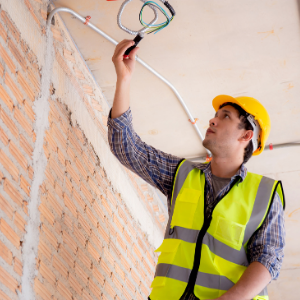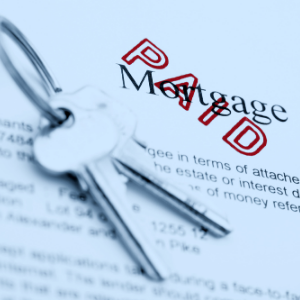
Closing on a property in Raleigh, NC, involves a series of intricate steps, with the appraisal being a key milestone in the home-buying process. Understanding how long after an assessment you can close is crucial for buyers and sellers aiming for a smooth transaction. This guide explores the expected timeline, providing insights tailored to the Raleigh real estate market. Whether you’re a first-time homebuyer or seasoned investor, this comprehensive overview will equip you with the knowledge to anticipate and navigate any potential delays, ensuring a seamless transition from appraisal to closing.
Key Highlights
- An appraisal evaluates a home’s value to set a fair market price, which is crucial in real estate transactions.
- Accurate appraisals prevent financial strains, ensuring fair price negotiations for buyers and sellers.
- Loan approval hinges on appraisal accuracy, which can expedite or delay the closing timeline in Raleigh, NC.
- Clear communication with Raleigh Realty helps prevent delays, facilitating efficient closing processes.
- Achieving “clear to close” status confirms loan readiness, signaling final preparations for sale completion.
Understanding the Appraisal Process
The appraisal process is a crucial component of real estate transactions, providing a thorough assessment of a home’s value before any sale or purchase. In Raleigh, NC, understanding what a home appraisal entails can provide invaluable insights into both the pricing and closing process. Furthermore, recognizing the significance of accuracy in appraisals ensures peace of mind for both buyers and sellers. This well-structured procedure not only influences how quickly you can close on a house but also determines the loan amount available. Delving into this process sheds light on why accurate appraisals are critical in the real estate market.
What a Home Appraisal in Raleigh, NC, Entails

A home appraisal is the process of determining a property’s fair market value, and it plays a critical role in real estate transactions. For buyers, it ensures they aren’t overpaying; for sellers, it validates their asking price; and for lenders, it confirms the home is worth the loan amount being issued.
A licensed appraiser begins with a thorough inspection of the property. This includes:
- Structural integrity (foundation, roof, and overall construction quality)
- Plumbing, electrical systems, and any signs of damage or repair needs
- Square footage, layout, and functionality of the space
- Overall condition and updates (renovations, upgrades, or wear and tear)
Appraisers also study comparable sales in the local market. These are recently sold homes similar in size, condition, and location. In Raleigh, factors such as school districts, neighborhood amenities, and community demand heavily influence appraisal values. A desirable location can significantly increase a home’s worth, while market issues or property concerns may lower it.
Once inspections and data analysis are complete, the appraiser issues a detailed appraisal report. This document outlines the process by which the property’s value was determined and serves as a key reference point in securing mortgage approval. For lenders, it assures that the property is a sound investment. For buyers and sellers, it establishes a fair and objective price point.
In Raleigh’s competitive housing market, accurate appraisals help transactions move smoothly from appraisal to closing. They minimize disputes, prevent surprises, and create a transparent process for all parties involved.
Understanding the home appraisal process empowers both buyers and sellers to navigate the real estate market with confidence, ensuring fair, efficient, and reliable transactions.
While appraisals are a must in traditional sales, homeowners who prefer speed often bypass this step by selling directly to companies like Fair Cash Offers For Homes. They buy houses for cash in Raleigh and nearby cities like Cary, Durham, Chapel Hill, Wake Forest, Apex, and Garner. No appraisals, no lender delays—just a straightforward sale.
Why Accurate Appraisals Matter in Real Estate Transactions
Accurate home appraisals are the foundation of fair and successful real estate transactions. They protect buyers, sellers, and lenders by ensuring that property values align with the accurate market. In a competitive market like Raleigh, NC, precision in the appraisal process can make or break a deal.
A correct appraisal prevents buyers from overpaying for a property. Since lenders base loan approvals on appraised values, accuracy ensures buyers don’t borrow more than the home is worth. This reduces financial strain and minimizes risks of foreclosure if market conditions shift.
Sellers benefit from appraisals that reflect the actual market value of their property. Accurate valuations:
- Prevent underselling in a hot market like Raleigh
- Strengthen the seller’s negotiating position
- Set realistic expectations for pricing and closing timelines
Lenders depend on accurate appraisals to manage risk. An inflated or inaccurate value could result in loans that exceed a property’s worth, creating potential losses. Reliable appraisals help lenders maintain confidence, stability, and fair lending conditions across the real estate market.
Accurate appraisals go beyond numbers—they provide transparency, fairness, and trust. In fast-moving markets such as Raleigh, they ensure informed decision-making, smoother negotiations, and fewer disputes. Ultimately, precise appraisals speed up the closing process and foster confidence among all parties.
Factors Influencing the Closing Timeline
The journey from appraisal to closing on a home in Raleigh, NC, involves several crucial steps that are integral to the entire real estate process. These steps contribute to the closing timeline and can impact how quickly a buyer and seller finalize their transaction. Two significant factors affecting this timeline are the speed of key elements associated with the closing process and the time it takes to secure loan approval. Understanding these elements can help both parties anticipate potential delays and ensure a smooth transition from appraisal to closing.
Key Elements Affecting Closing Speed
When buying or selling a home, closing speed is one of the most critical factors to understand. The timeline from appraisal to final closing can vary significantly, depending on the level of preparation of the buyer, seller, and lender, the handling of contingencies, and the overall smoothness of the process. Staying proactive in these areas can prevent unnecessary delays and keep the transaction on track.
The preparedness of both parties has a direct impact on the real estate closing timeline. Buyers who secure loan pre-approval early often experience fewer delays, as lenders already have the necessary documentation to clear financing quickly. On the seller’s side, completing repairs, addressing inspection issues, or arranging legal support in advance helps prevent last-minute setbacks. When both buyer and seller are organized, closing can move much faster.

Contingencies—such as inspections, appraisals, and financing approval—are common but can slow down a transaction if not managed efficiently. Issues uncovered during inspections (like plumbing, roofing, or electrical problems) may lead to negotiations, repairs, or even reappraisals. The more complex the contingencies, the longer the process may take. Experienced real estate agents and negotiators can help resolve these quickly, minimizing delays.
The efficiency of the closing process often hinges on effective communication. Missing paperwork, miscommunication between parties, or delays in signatures can all derail the timeline. Regular updates between real estate agents, attorneys, lenders, and title companies keep everyone aligned and ensure that problems are addressed immediately. A well-organized team shortens the path to closing by eliminating unnecessary holdups.
While closing timelines vary, understanding these key elements that affect closing speed can help buyers and sellers in Raleigh, NC, stay prepared and proactive. By securing loan approval early, addressing contingencies promptly, and maintaining clear communication, all parties can work together toward a smooth, efficient, and timely closing.
Role of Loan Approval in the Closing Timeline
Loan approval is the cornerstone of any real estate transaction, and in a competitive market like Raleigh, NC, timely approval can make or break a deal. Swift loan approval shortens the closing process, while delays can stall negotiations and push back closing dates.
The process involves evaluating the borrower’s credit score, income, employment history, and debt-to-income ratio, as well as verifying all required documents. Buyers who prepare these materials in advance and stay responsive to lender requests can avoid unnecessary setbacks.
Appraisals also play a key role. Accurate property valuations give lenders confidence and speed up approvals, while discrepancies or reappraisal demands often cause delays. Clear communication with the lender and prompt responses help resolve potential issues quickly.
In short, loan approval directly impacts how fast you can close on a home in Raleigh. Being financially prepared, organized, and proactive with your lender ensures a smoother, faster path to the closing table.
How to Speed Up the Closing Process After Home Appraisal
Once a home appraisal is complete, the journey toward closing begins. In Raleigh, NC, there’s a clear path from appraisal to finalizing the purchase, but delays can arise without careful attention to detail. By understanding how to expedite the closing process, buyers and sellers can move quickly from appraisal to finalized sale. Vital steps include ensuring the timely completion of necessary paperwork and maintaining open channels of communication with all parties involved, particularly with Raleigh real estate professionals. This approach not only speeds up the process but also minimizes potential delays that could extend the timeline to closing.
How to Expedite the Closing Process in Raleigh, NC
While booking a closing meeting for real estate transactions in Raleigh, planning a streamlined timeline may reduce the time allocated for each closing. As always, the first step in the process should be preparing the documentation. Making arrangements for identification, an employment verification letter, a credit report, and a report on any supplementary documents that may be needed, as well as payment for the closing meeting that the buyer intends to attend, gives the seller a sigh of relief. The buyer, of course, should obtain a pre-approval letter from their lender; this helps the buyer prove to the seller that they are, indeed, willing and able to provide financing. More importantly, it gets the lender wired to the buyer, which helps reduce the chances of delays, as no lender wants to keep a buyer waiting.
A buyer accepting a seller’s closing date to reduce waiting time helps the seller, and not the other way around. In this scenario, the buyer is often able to anticipate the closing meeting and thus meet the closing timeline. Reactively to the timetable, an appropriately skilled real estate agent is also on time with the required documentation for the closing meeting. The delay that the real estate agent plans for is their buffer time, in which they anticipate genuine, real-life traffic. All other delays are, of course, not accepted.
The use of technology aids in accelerated closing within a transactional framework. The use of online document signing, virtual meetings, and digital communication eliminates the need for in-person meetings, thereby removing any delays associated with them. The ability to multitask also aids in closing, as buyers and sellers can arrange for insurance, title work, and lender requirements simultaneously, rather than in a step-wise fashion. Coupled with other communication strategies within the parties, this approach enhances efficiency and facilitates a smoother closing process, resulting in reduced stress.
Importance of Clear Communication in Raleigh Real Estate Closings
In Raleigh, clear communication is vital to any commercial real estate closing strategy. While working at Raleigh real estate closings, clear communication is essential to ensure that, at each step of the process, all parties involved—buyers, sellers, lenders, and agents—stay on the same page regarding timelines and requirements. This communication reduces the chance of confusion, which can lead to delays. A reputable local real estate agent can predict and mitigate potential issues, avoiding significant problems before they even arise.
Communication is aided through available technology. Emails, texts, and phone messages ensure that all relevant events in the process are promptly communicated to the lender, documents are authorized, and appointments are scheduled. Ongoing consultation with your agent will ensure that initiative is taken on every step of the transaction process to prevent progress from stagnating.
Scheduled physical and video conferences also help real estate agents eliminate potential communication gaps. Trust is built during the meetings, expectations become clearer, and more importantly, conflict can be settled quickly and more easily. This is a much-appreciated trait in the commercially competitive Raleigh estate market.
Ultimately, efficiency does not come at the cost of being rushed. Constructive, conflict-free, and aligned communication brings about the best outcomes.
What Does “Clear to Close” Mean in Real Estate?
In the realm of real estate transactions, particularly in vibrant markets like Raleigh, NC, hearing that a loan is “clear to close” is a significant milestone. This term indicates that final approval has been granted and all financial conditions have been met, allowing the parties to move toward concluding the sale. It’s a critical juncture confirming that both buyer and lender are ready to execute the closing. Understanding its implications is vital for timing the transition from appraisal to sale successfully. Key subjects here encompass when a loan is considered cleared and the final preparations before signing papers.
When is a Loan Considered Cleared?

A loan is considered cleared once the lender has performed all necessary checks and verified that the borrower has fulfilled all financial obligations. This part is commonly referred to as “clear to close”- the lender has verified the borrower’s credit, income, employment, and other relevant parameters. To put it differently, the lender has no doubts that the borrower can handle the loan and is free to determine a closing date.
Proposed timelines with the loan in its current state begin with its resetting functionality. This includes the borrower’s credit, income, assets, and the real estate’s appraisal report. Throughout this phase, borrowers are requested to assist with every document/question as well as contact the lender. Issues arise when the appraisal value and loan criteria are out of sync, and resolving them can help expedite the process.
In Raleigh, where the real estate market has many buyers and few sellers, lenders, including the writer, may have a strong tendency to verify the appraisal by comparing sales of neighboring similar properties to confirm that the loan accurately reflects the value of the collateral real estate offered. If the assessment is below the target, buyers and sellers may have to undergo a lengthy renegotiation process, reappraisal, and documentation, which can be a distressing phase for all involved. Early to mid-stage planning for any of the hurdles can go a long way in fixing them.
When the loan is marked as “clear to close,” all buyers have completed the most intense phase of the process. At this juncture, the buyers and closing team focus on settling closing costs, finalizing logistics for the property transfer, and organizing other closing documents. Whether the milestone is achieved or not indicates the lender’s unwavering faith in the borrower’s financial stability and the property’s value, as well as the absence of financial hurdles on closing day.
Cash sales, on the other hand, are far more straightforward. That’s the benefit of choosing Fair Cash Offers For Homes. They buy houses for cash in Durham, Cary, and Chapel Hill, simplifying the process so you can move forward without the usual delays.
Final Preparations Before Closing the Deal in Raleigh, NC
When buyers and sellers are on the verge of completing a real estate transaction, the team’s focus shifts to preparing for the closing. During this preparation phase, a multitude of activities are coordinated to ensure a seamless execution on the closing day. Open lines of communication between the buyer, seller, lender, and your real estate agent are crucial in mitigating the risk of potential closing delays. The ability to sequentially execute and final documents, assess closing costs, and fulfill any pending conditions is the defining point in outcome achievement.
Buyers must fulfill one of the primary obligations that can impede approval: procuring home insurance. Since lenders require home insurance before approving the loan, this is a step they must fulfill. Given the importance of the final closing documents, which in this instance comprise the closing disclosure outlining the terms of the loan and monthly payment obligations, along with any pertaining fees, buyers have to undertake the necessary actions to address and rectify any potential surrounding gaps and inaccuracies, and dismiss any chances of complexities negatively surfacing during the final sale.
All conditions, including final inspections and any repair agreements, should be negotiated and settled well in advance of the closing. Collaborating with a realtor in particular should streamline the process, especially if changes are unable to be made before the appraisal. Active leadership and aim allowed the parties to the transaction to remain together.
When the necessary arrangements have been made, they may set the closing date. On the closing date, buyers and sellers conduct the payment and transfer of keys simultaneously to complete the sale. The buyers, who in this case assume the role of the lender, should ascertain the correct value of the closing costs associated with the transaction so that they can have the funds prepared in advance. Transfers over the internet or the use of escrow accounts should be considered to minimize potential transaction delays. These steps are also crucial for buyers in the Raleigh area, given the intense competition in the region.
In the end, the last part of closing is mainly described as the most structural, needing the most focus on the order and flow of paperwork. By resolving the most critical issues first and having all participants fully briefed on the topic, the complicated handover of the funding location to the correct person in the company can be easily handled. With buyers taking as much time as needed and sellers having professional options in advance, both sides are very capable of progress in the end.
In Raleigh, NC, the timeline from appraisal to closing often takes just one to two weeks if handled proactively. By staying informed about local market dynamics and working closely with your lender and real estate agent, you can minimize delays and move efficiently toward a successful closing—marking the beginning of your next chapter in the Raleigh real estate market.
No matter your situation, Fair Cash Offers For Homes makes selling simple by providing fair cash offers, quick closings, and a stress-free alternative to the traditional real estate process. Contact us at (919) 551-8506 today to know more!
Helpful Raleigh Blog Articles
● Selling An Inherited House In Raleigh, NC
● Sell A Foreclosed Home In Raleigh, NC
● Selling Your Raleigh, NC, Home In Poor Condition
● Sell A Fire-Damaged House In Raleigh, NC
● Cost To Sell A House In Raleigh, NC
● Selling A Fixer-upper Home In Raleigh, NC
● Tax Responsibilities When Selling A House In Raleigh, NC
● Can You Sell a House with a Lien in Raleigh, NC
● How Long After an Appraisal Can You Close in Raleigh, NC
● Can the Executor of a Will Sell Property in Raleigh, NC?
● Best Things to Do in Raleigh, NC, With Kids
● Free Things to Do in Raleigh, NC

